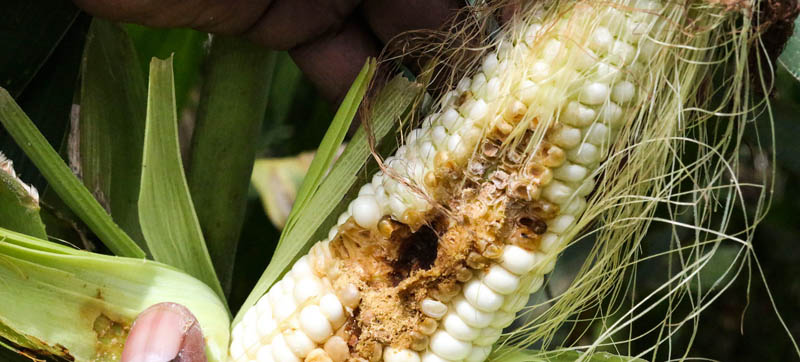 Climate Change
Climate Change
Invasive pest spread another fallout from climate change, UN-backed study finds
New York: Climate change is making pests which ravage important agricultural crops even more destructive, heightening threats to global food security and the environment, a UN-backed study published on Wednesday has found.
The scientific review looks at 15 plant pests that have spread or may spread due to climate change. Risks are increasing, the authors warn, with a single, unusually warm winter capable of providing conditions suitable for insect infestations.
“The key findings of this review should alert all of us on how climate change may affect how infectious, distributed and severe pests can become around the world,” said Qu Dongyu, Director-General of the UN Food and Agriculture Organization (FAO), speaking at the launch.
"The review clearly shows that the impact of climate change is one of the greatest challenges the plant health community is facing,” he added.
Billions lost annually
The study was prepared by Professor Maria Lodovica at the University of Turin in Italy, along with 10 co-authors from across the globe, under the auspices of the Secretariat of the International Plant Protection Convention, which FAO hosts.
Some 40 per cent of global crop production is currently lost to pests, the UN agency said, and plant diseases rob the global economy of more than $220 billion annually. Invasive pests cost countries at least $70 billion, and they are also one of the main drivers of biodiversity loss.
Species such as fall armyworm, which feeds on crops that include maize, sorghum and millet, have already spread due to warmer climate. Others, such as desert locusts, which are the world’s most destructive migratory pests, are expected to change their migratory routes and geographical distribution.
Movements like these threaten food security as a whole, the report said, and small holder farmers, as well as people in countries where food security is an issue, are among those especially at risk.
Preserving plant health
The report is among the key initiatives of the International Year of Plant Health, which concludes this month.
"Preserving plant health is fundamental to achieve the Sustainable Development Goals”, said Mr Qu, the FAO Director-General. “Sustaining plant health is an integral part of our work towards more efficient, inclusive, resilient and sustainable agri-food systems.”
The authors have outlined several recommendations to mitigate the impact of climate change, starting with stepping up international cooperation, as effective management of plant pests in one country affects success in others.
As half of all emerging plant diseases are spread through travel and trade, improved measures to limit transmission, while adjustments to plant protection policies are also critical.
They also stressed the need for more research, and more investments in strengthening national systems and structures related to plant health.
Support Our Journalism
We cannot do without you.. your contribution supports unbiased journalism
IBNS is not driven by any ism- not wokeism, not racism, not skewed secularism, not hyper right-wing or left liberal ideals, nor by any hardline religious beliefs or hyper nationalism. We want to serve you good old objective news, as they are. We do not judge or preach. We let people decide for themselves. We only try to present factual and well-sourced news.







